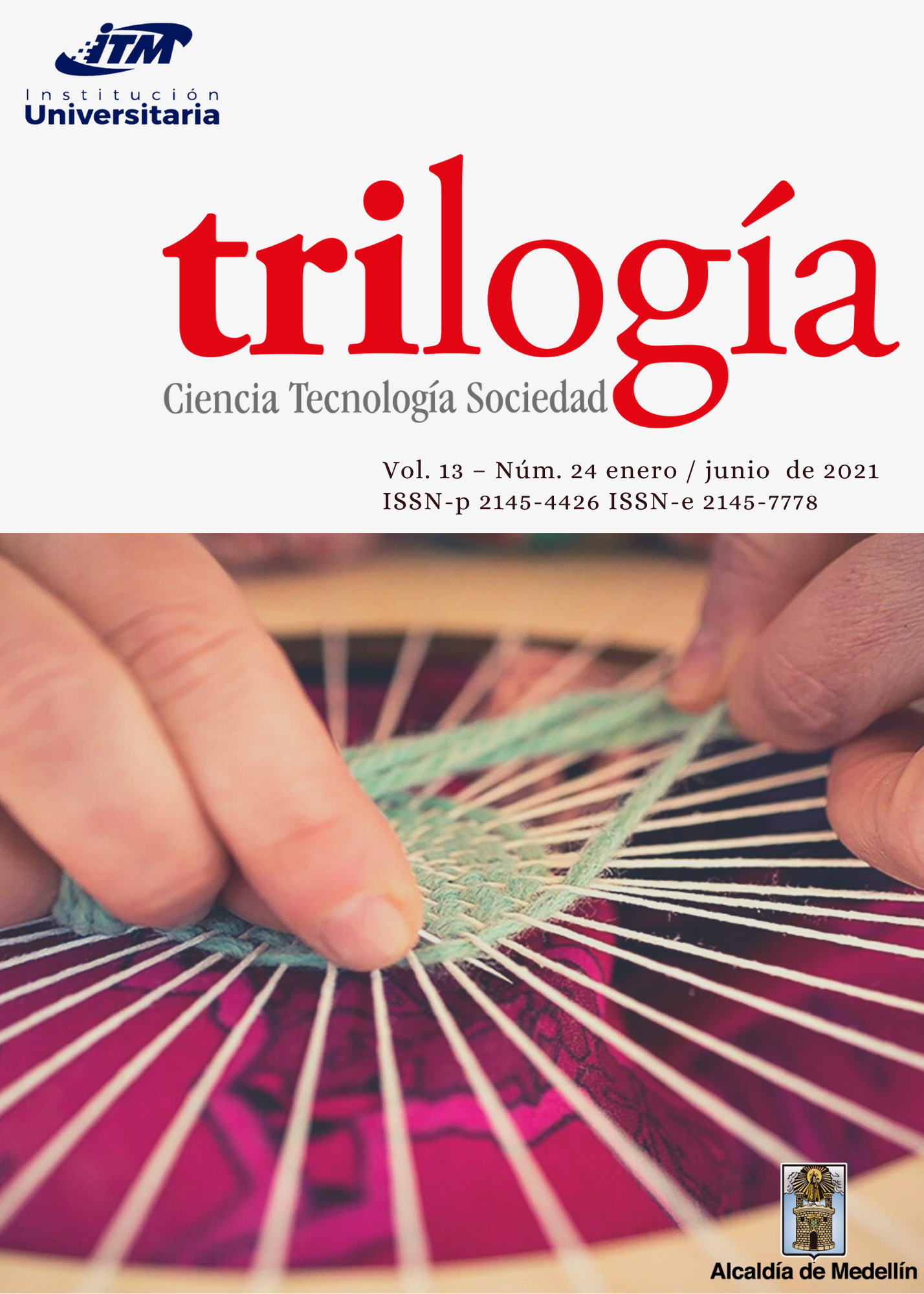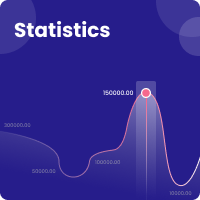Remote Education and Technological Access in Paraguay: Parents’ and Students’ Perspective Through Covid-19
Abstract
The measures taken as a result of the COVID-19 pandemic have led to more than 70 % of educational institutions worldwide closing and implementing strategies to sustain school education processes. This study analyses the perspectives of parents and students regarding the challenges and difficulties related to access to technological resources and the implementation of educational activities in Paraguay. A mixed quantitative and qualitative methodology was used; closed and open questionnaires were administered during the first weeks of quarantine. The sample included 505 parents and 856 students from public and private institutions throughout the country. Significant differences were found in access to devices such as mobile phones and computers (p< 0.001), but not in the limitations for connecting to the Internet (p= 0.58). Participants agree that the main difficulties include insufficient understanding of the homework assigned, lack of motivation and connectivity problems, especially in areas far from the urban centers of the country. Successfully reaching parents and students is of critical importance if the quality of education and the continuity of the educational process are to be assured.
References
Almazán Gómez, A. (2020). Covid-19: ¿punto sin retorno de la digitalización de la educación? Revista Internacional de Educación para la Justicia Social, v. 9, n. 3, 1-4. https://revistas.uam.es/riejs/article/view/12089
Álvarez, M.; Gardyn, N.; Iardelevsky, A.; Rebello, G. (2020). Segregación educativa en tiempos de pandemia: balance de las acciones iniciales durante el aislamiento Social por el COVID-19 en Argentina. Revista Internacional de Educación para la Justicia Social, v. 9, n. 3. https://revistas.uam.es/riejs/article/view/12268
Armitage, R.; Nellums, L. B. (2020). Considering inequalities in the school closure response to COVID-19. The Lancet Global Health, v. 8, n. 5, e644. https://doi.org/10.1016/S2214-109X(20)30116-9
Bao, W. (2020). COVID-19 and online teaching in higher education: A case study of Peking University. Human Behavior & Emerging Technologies, n. 2, 113-115. https://doi.org/10.1002/hbe2.191
Bhaumik, R.; Priyadarshini, A. (2020). E-readiness of senior secondary school learners to online learning transition amid COVID-19 lockdown. Asian Journal of Distance Education, v. 15, n. 1, 244-256. https://asianjde.org/ojs/index.php/AsianJDE/article/view/456
Borup, J.; Jensen, M.; Archambault, L.; Short, C.R.; Graham, C. R. (2020). Supporting Students During COVID-19: Developing and Leveraging Academic Communities of Engagement in a Time of Crisis. Journal of Technology and Teacher Education, v. 28, n. 2, 161-169. https://www.learntechlib.org/primary/p/216288/
Bozkurt, A.; Sharma, R. C. (2020). Emergency remote teaching in time of global crisis due to Coronavirus pandemic. Asian Journal of Distance Education, v. 15, n. 1, 1-6. https://asianjde.org/ojs/index.php/AsianJDE/article/view/447
Cáceres-Piñaloza, K. F. (2020). Educación virtual: Creando espacios afectivos, de convivencia y aprendizaje en tiempos de COVID-19. CienciAmérica, v. 9, n. 2, 38-44. http://dx.doi.org/10.33210/ca.v9i2.284
Calderón, D. (2020). Jóvenes y desigualdad digital: las brechas de acceso, competencia y uso. https://www.adolescenciayjuventud.org/jovenes-y-desigualdad-digital-las-brechas-de-acceso-competencias-y-uso/
Cerdan, P. (16 de junio de 2020). Education is now everybody’s homework. World Bank Blogs. https://blogs.worldbank.org/latinamerica/education-now-everybodys-homework
Cifuentes-Faura, J. (2020). Consecuencias en los niños del cierre de escuelas por COVID-19: el papel del Gobierno, profesores y padres. Revista Internacional de Educación para la Justicia Social, v. 9, n. 3, 1-12. https://revistas.uam.es/riejs/article/view/12216
Consejo Nacional de Educación Superior. (2020). Educación Superior del Paraguay en Tiempos de COVID-19. http://www.cones.gov.py/educacion-superior-del-paraguay-en-tiempos-de-covid-19/
Corporación Andina de Fomento. (2020). El estado de la digitalización de América Latina frente a la pandemia del COVID-19. http://scioteca.caf.com/handle/123456789/1540
Daniel, S. J. (2020). Education and the COVID-19 pandemic. Prospects, v. 49, n. 1-2, 91-96. https://doi.org/10.1007/s11125-020-09464-3
Dirección General de Estadísticas Encuestas y Censos. (2020). Población Paraguay 2020 por Departamento y sexo según proyección. https://www.dgeec.gov.py/vt/Poblacion-Paraguay-2020-por-departamento-y-sexo-segun-proyeccion.php
Esposito, S.; Principi, N. (2020). School Closure During the Coronavirus Disease 2019 (COVID-19) Pandemic: An Effective Intervention at the Global Level? JAMA Pediatrics. https://doi.org/10.1001/jamapediatrics.2020.1892
Falla, S.; Hermelín, D.; Aguirre, C. (2016). Conectar comunidades para construir sentidos sociales en torno al conocimiento. Trilogía Ciencia Tecnología Sociedad, v. 8, n. 15, 57-68. https://doi.org/10.22430/21457778.400
Gallardo Gutiérrez, A. L. (2020). Educación indígena en tiempos de COVID-19: viejos problemas, nuevos problemas. En H. Casanova Cardiel (coordinador.), Educación y pandemia: una visión académica (pp. 164-169). https://www.iisue.unam.mx/nosotros/covid/educacion-y-pandemia
Honorable Cámara de Diputados del Paraguay. [TV Cámara Paraguay]. (junio 25, 2020). La educación de los niños en tiempos de cuarentena. Una mirada nueva. [archivo de video]. https://www.youtube.com/watch?v=4ytQCpqCoBA
Hodges, C.; Moore, S.; Lockee, B.; Trust, T; Bond, A. (2020). The Difference between Emergency Remote Teaching and Online Learning. https://er.educause.edu/articles/2020/3/the-difference-between-emergency-remote-teaching-and-online-learning
Jiménez, J. C. (2020). Polémicas educativas en confinamiento. Revista Internacional de Educación para la Justicia Social, v. 9, n. 3, 1-15. https://revistas.uam.es/riejs/article/view/12084
Li, C.; Lalani, F. (2020). The COVID-19 pandemic has changed education forever. This is how. https://www.weforum.org/agenda/2020/04/coronavirus-education-global-covid19-online-digital-learning/
Lusquiños C. (2020). Acceso a TIC, habitualidad en el uso y desempeño escolar en contextos diferenciados. ¿Una alternativa para el aprendizaje en escuelas primarias? Revista Internacional de Educación para la Justicia Social, v. 9, n. 3, 1-15. https://revistas.uam.es/riejs/article/view/12353
Ministerio de Educación y Ciencias de Paraguay. (2020). Plan de Educación en Tiempos de Pandemia. "Tu escuela en casa". https://www.mec.gov.py/cms_v2/adjuntos/15716?1589908264
Ministerio de Salud Pública y Bienestar Social de Paraguay. (2020). Primer caso del nuevo coronavirus en el Paraguay. https://www.mspbs.gov.py/portal/20535/primer-caso-del-nuevo-coronavirus-en-el-paraguay.html
Monasterio, D.; Briceño, M. (2020). Educación mediada por las tecnologías: un desafío ante la coyuntura del COVID-19. Observador del Conocimiento, v. 5, n. 1, 136-148. http://www.oncti.gob.ve/ojs/index.php/rev_ODC/article/view/132
Moreno-Rodríguez, R. (2020). Reflexiones en torno al impacto del COVID-19 sobre la educación universitaria: aspectos a considerar acerca de los estudiantes con discapacidad. Revista Internacional de Educación para la Justicia Social, v. 9, n. 3, 1-6. https://revistas.uam.es/riejs/article/view/12227
Muñoz Moreno, J. L.; Lluch Molins, L. (2020). Educación y COVID-19: colaboración de las familias y tareas escolares. Revista Internacional de Educación para la Justicia Social, v. 9, n. 3, 1-17. https://revistas.uam.es/riejs/article/view/12182
Naciones Unidas; Comisión Económica para América Latina y el Caribe. (2020). América Latina y el Caribe ante la pandemia del COVID-19: efectos económicos y sociales. https://www.cepal.org/fr/node/51176
Observatorio Argentinos por la Educación. (2020). COVID-19: ¿Qué hicieron los países para continuar con la educación a distancia? https://cms.argentinosporlaeducacion.org/media/reports/ArgxEduc_SolucionesEducativas_Coronavirus.pdf
Observatorio Educativo Ciudadano. (2020a). Diálogo sobre educación. Conversaciones para un país en emergencia. Sistematización del diálogo virtual con Fernando Reimers. https://observatorio.org.py/uploads/report_file/url/61/1593450365-sitematizacion_dialogo_virtual_FR.pdf
Observatorio Educativo Ciudadano. (2020b). Estudiantes toman la palabra. https://www.observatorio.org.py/especial/32
Organización de Estados Iberoamericanos para la Educación, la Ciencia y la Cultura. (2020). La OEI elabora la primera guía de calidad iberoamericana sobre educación a distancia. https://www.iesalc.unesco.org/2020/06/05/la-oei-elabora-la-primera-guia-de-calidad-iberoamericana-sobre-educacion-a-distancia/
Prensky, M. (2009). H. Sapiens Digital: From Digital Immigrants and Digital Natives to Digital Wisdom. Innovate: Journal of Online Education, v. 5, n. 3. https://nsuworks.nova.edu/innovate/vol5/iss3/1/
R Core Team. (2020). The R Project for Statistical Computing. https://www.R-project.org/
Reimers, F. M.; Schleicher, A. (2020). A framework to guide an education response to the COVID-19 Pandemic of 2020. OECD. https://www.hm.ee/sites/default/files/framework_guide_v1_002_harward.pdf
Saavedra, J. (30 de marzo de 2020). Educational challenges and opportunities of the Coronavirus (COVID-19) pandemic. World Bank Blogs. https://blogs.worldbank.org/education/educational-challenges-and-opportunities-covid-19-pandemic
Sanz, I.; Sáinz González, J.; Capilla, A. (2020). Efectos de la crisis del coronavirus en la Educación Superior. https://www.flacsi.net/wp-content/uploads/2020/04/EFECTOS-DE-LA-CRISIS-DEL-CORONAVIRUS-EN-EDUCACI%C3%93N.pdf
Tarabini, A. (2020). ¿Para qué sirve la escuela? Reflexiones sociológicas en tiempos de pandemia global. Revista de Sociología de la Educación (RASE), v. 13, n. 2, 145-155. https://doi.org/10.7203/RASE.13.2.17135
Tzifopoulos, M. (2020). In the Shadow of Coronavirus: Distance education and digital literacy skills in Greece. International Journal of Social Science and Technology, v. 5, n. 2, 1-14. http://www.ijsstr.com/Vol.-5-No.-2-April-2020
UNESCO. (2020a). COVID-19 Educational Disruption and Response. https://en.unesco.org/news/covid-19-educational-disruption-and-response
UNESCO. (2020b). Surgen alarmantes brechas digitales en el aprendizaje a distancia. https://es.unesco.org/news/surgen-alarmantes-brechas-digitales-aprendizaje-distancia
Viner, R. M.: Russell, S. J.; Croker, H.; Packer, J.; Ward, J.; Stansfield, C.; Mytton, O.; Bonell, C.; Booy, R. (2020). School Closure and Management Practices During Coronavirus Outbreaks Including COVID-19: A Rapid Systematic Review. The Lancet. Child & Adolescent Health, v. 4, n. 5, 397-404. https://doi.org/10.1016/S2352-4642(20)30095-X
Van Lancker, W.; Parolin, Z. (2020). COVID-19, school closures, and child poverty: a social crisis in the making. The Lancet Public Health, v. 5, n. 5, e243-e244. https://doi.org/10.1016/S2468-2667(20)30084-0
Wang, G.; Zhang, Y.; Zhao, J.; Zhang, J.; Jiang, F. (2020). Mitigate the effects of home confinement on children during the COVID-19 outbreak. The Lancet, v. 395, n. 10228, 945-947. https://doi.org/10.1016/S0140-6736(20)30547-X
World Health Organization. (2020). Coronavirus disease (COVID-19) advice for the public. https://www.who.int/emergencies/diseases/novel-coronavirus-2019/advice-for-public
Downloads
Copyright (c) 2021 Instituto Tecnológico Metropolitano

This work is licensed under a Creative Commons Attribution-NonCommercial-ShareAlike 4.0 International License.










